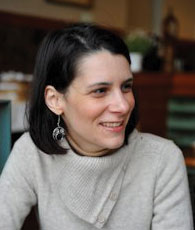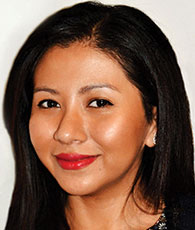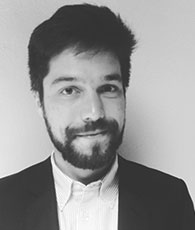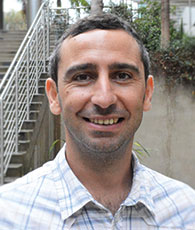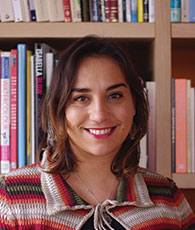Social sciences and humanities research
The social sciences and humanities cover a wide range of disciplines that hold the keys that can help us understand the complexity in today’s world. We met five Fellows who told us – passionately – why they chose SSH research and why this sector is crucial in research.
Defining the Humanities and the Social Sciences (SSH)
According to the Canadian Federation for the Humanities and Social Sciences, the humanities are disciplines that investigate the human condition. They include (but are not limited to):
-
ancient and modern languages;
-
literature;
-
history;
-
philosophy;
-
religion;
-
visual and performing arts such as music and theatre.

The social sciences are fields of study that consider society and human behaviour. They include (but are not limited to):
-
anthropology;
-
archaeology;
-
criminology;
-
economics;
-
education;
-
linguistics;
-
political science and international relations;
-
sociology;
-
geography;
-
law;
-
psychology.
SSH and Horizon 2020
Social sciences and humanities (SSH) research is integrated into ‘societal challenges’ addressed by the Horizon 2020 programme
(the EU Research and Innovation programme 2014-2020), as follows:
- Health, Demographic Change and Wellbeing: the economic and social analysis necessary for reforming public health systems;
- Smart, green and integrated transport: the socio- economic aspects of transport, prospective studies and technology foresight;
- Climate action and resource efficiency: the cultural, behavioural, socio-economic and institutional change needed to move to a more self-reliant and resource efficient economy;
- Europe in a changing world: new ideas, strategies and governance structures for overcoming the economic crisis in Europe, innovation in the public sector enabled by ICT, business model innovation, social innovation, European cultural heritage, history, culture and identity;
- Leadership in enabling and industrial technologies: the arts and humanities can be a source of creativity when developing services and designing products.
Our Fellows
“I like to call myself as a Social Engineer who is interested in exploring the frontiers of environmental sciences.”
From Brazil
Worked on a Marie Curie project ‘Analysis of Waste Prevention Behaviour through a Conceptual Statistical Model and Scenario Simulation’ Host city and country: Sheffield, UK
“I’m passionate about my work in the area of teachers professional
learning and development. Thanks to Marie Curie I have my dream job.” From Ecuador
Currently working on an inter- professional study which aims to increase understanding
of how professional learning and development is supported within the workplace, with the teaching profession as a pivotal point of the dissertation. Host city and country: Budapest, Hungary
“Although I did my secondary studies within life sciences, I got to the point where psychology could offer both views of the world, and of the subject of study, the human being.” From Portugal
Currently working on an interdisciplinary project in the field of forensic sciences
(INTREPID). Host city and country: Leicester, UK
“In particular, I was interested and excited with the topic ‘Europe in a changing world - Inclusive, innovative and reflective societies’ as this is the epicentre of my work from an educational perspective.” From Cyprus
Currently working on a project examining the social networks
and peer relationships of all students in a classroom,
with an emphasis on those identified as having special educational needs and disabilities. The research is intended to further inclusivity within public schools in underserved areas across three countries: the USA, UK and Cyprus. Host city and country: Plymouth, UK
“I am a proud ‘Marie Curie Action’ Fellow recipient through a COFUND Action called ‘NEWFELPRO’. I was the first
one to get the project in Humanities during the first call.”
From Croatia
Currently working on a project
which applies knowledge from monument conservation, art history (research and application), historical (especially political) and contemporary influences in Europe to the study of the protection of Slovenian and Croatian monuments during the period between the two World Wars. Host city and country: Ljubljana, Slovenia
Why SSH are crucial
All of our Fellows agree that SSH are essential to understanding today’s society in all its complexity. “We are now in the ‘mind century’ which means that most research and technological innovations will involve a connection with human behaviour. In that sense, SSH are becoming not only an important but an essential field to achieve a sustainable society,” says Ana. “SSH are important because they help us to connect with the society, unveil reasons behind actions and anticipate consequences of different decisions. For instance, understand the world in which we live today,” echoes Deisi.
“Problematic integration and inclusion of refugees in European societies may lead to the rise of populist political parties”
According to Christoforos, SSH are absolutely vital to maintaining and further enhancing an inclusive society. “One concrete example is the social integration of incoming refugees to Europe and other countries in the world. Problematic integration and inclusion of refugees in European societies may lead to the rise of populist political parties and further divide the people of Europe,” he adds “Another example would be rising problems relating to mental health issues in Europe. Increasingly, more children, young people and adults seem not to be able to cope with the pressures of modern life, resulting in a crisis of mental health wellbeing.”
“Natural and technical sciences do not combine every interdisciplinary aspect, in my opinion, like SSH disciplines do”
What is the added value compared to the other sciences? Nina answers: “SSH interpret and give us information on society and history of cultures and artefacts using facts and previous data in a way that no mathematic formula can do. They also encourage critical thinking, something that is sometimes sadly missing from natural sciences and engineering.” For example, to save an ancient building, knowing how it was made but not knowing under which circumstances it was repaired makes the research quite complex, to the extent that the researcher has to dig into archives and to combine the extracted data to get a complete picture of what happened. “Natural and technical sciences do not combine every interdisciplinary aspect in my opinion, like SSH disciplines do,” she muses.

The Vilnius declaration
In September 2013, a two-day conference was held in Vilnius, Lithuania, organised by the Lithuanian Presidency of the Council of the European Union, to address how socio-economic sciences and humanities could be incorporated into Horizons 2020. The result is the Vilnius Declaration on Horizons for Social Sciences and Humanities (SSH), published on 24 September 2013. The Declaration contains the following statements:
- innovation is a matter of change in organisations and
- institutions as well as technologies;
- fostering the reflective capacity of society is crucial for sustaining a vital democracy;
- policy-making and research policy have much to gain
- from SSH knowledge and methodologies;
- drawing on Europe’s most precious cultural assets, SSH play a vital role in redefining Europe in a globalizing world and enhancing its attractiveness;
- pluralistic SSH thinking is a precious resource for all of Europe’s future research and innovation trajectories.
The majority of our Fellows weren’t aware of this declaration; this might show a lack of communication around the declaration. “From my point of view, the SSH have been informally integrated and sometimes deeply embedded within other fields for a lot of time, but this wasn’t formally recognised until the declaration. However, there
is still a lot of work to be done for the social sciences to be recognised as critically important as other fields are for the development of society,” says Deisi, who was our only Fellow aware of the declaration.
The Bratislava Conference
The Bratislava conference took place from 14 to 16 November 2016. It highlighted how SSH research has a vital role to play now and after 2020 in Europe’s interconnected research agenda. It also holds the keys to addressing European concerns.
Nina and Francisco were aware of the event but unable to attend. “I believe that conferences about social sciences only are important. But, honestly, I believe the best way to overcome obstacles is to gather people with different perspectives,” says Francisco.
The Net4society network
Net4Society is the international network of National Contact Points for Horizon 2020’s Societal Challenge 6 (‘Europe in a changing world: inclusive, innovative and reflective societies’). It aims at increasing the visibility of SSH research and its impact on society and the European Research Area.
Again, the network’s visibility seems limited, as not all of our Fellows were aware of its existence. “Net4Society is also not a very visible network. I found out about it just recently and just applied for enrolment. I have noticed that most of the projects are focused on social sciences rather than humanities, which is unfortunate, but understandable,” says Nina.
However, our Fellows have suggestions for improving cooperation within the network: “I think it should promote interdisciplinary research among Early Stage Researchers and young scientists by creating spaces in which running projects and opportunities of cooperation could be spotted and discussed,” suggests Deisi, whereas Christoforos would like to see more interdisciplinary projects to bridge the gap between research and practice.
Challenges ahead for SSH Researchers
The future of SSH research is not looking bright for some of our Fellows. Nina expresses concerns: “I have seen a dangerous trend in the EU, and more specifically inside the Marie Curie community, in which investment in academic sectors is severely diminished or erased altogether in favour of non-academic sectors.” According to her, not all SSH researchers could work in the non-academic sector. “Most researchers in the SSH field are purely theoretical, upgrading their knowledge through archival work – the Commission and our colleagues from other fields have to understand that we are producing invaluable knowledge, information and data,” she adds. One solution could be to make the job market more accessible to people holding SSH degrees.

The role of SSH in society –
now and in the future
All of our Fellows agree on the fact that SSH should receive greater recognition for the role they play in our society. “For quite some time, social sciences have been the semi-silent contributor to the development of societies, but since its research, goals and effects are somehow less visible or less tangible than in other fields, they
have been largely ignored. Greater recognition will provide resources for more research in the SSH to be done, thereby triggering greater multidisciplinary interaction between SSH and other fields,” says Deisi.
“While natural and tech sciences research the present and the future, SSH focuses primarily on the past, helping us to achieve a broader vision for society. Because, without the past, there is no future.” concludes Nina.
